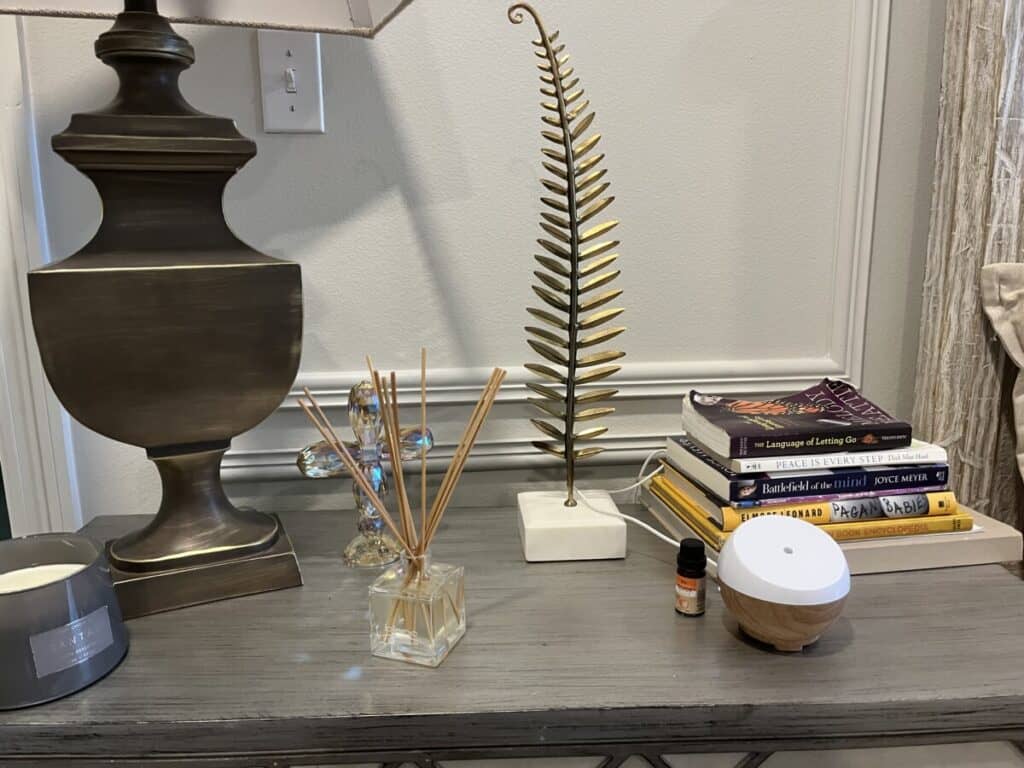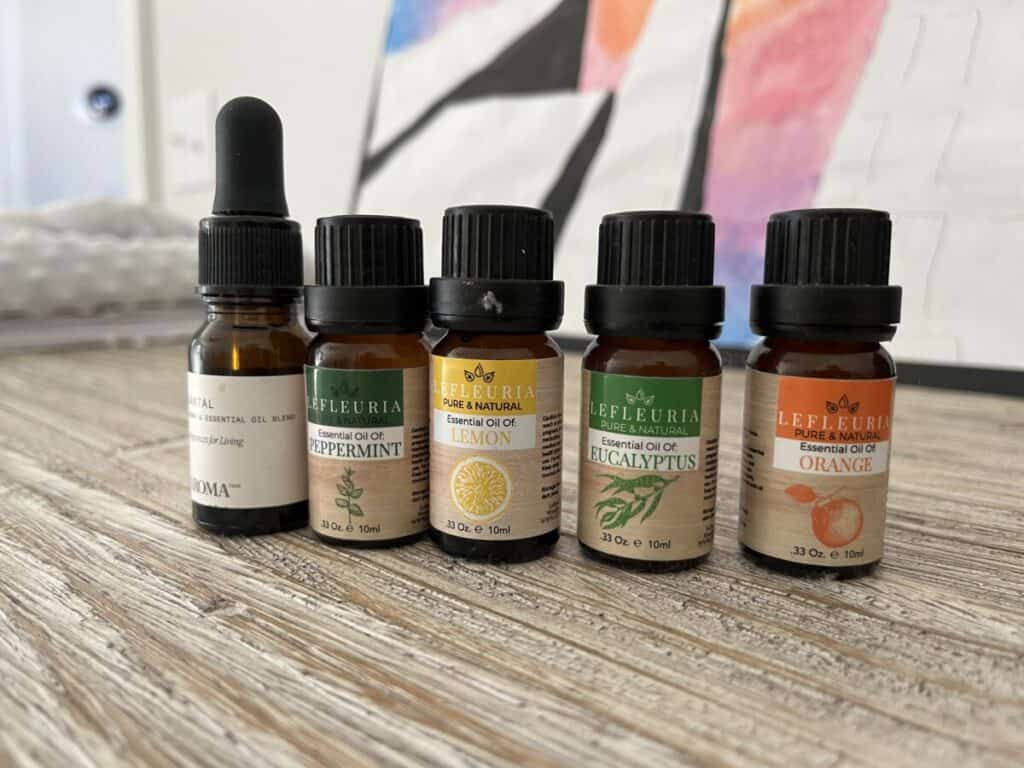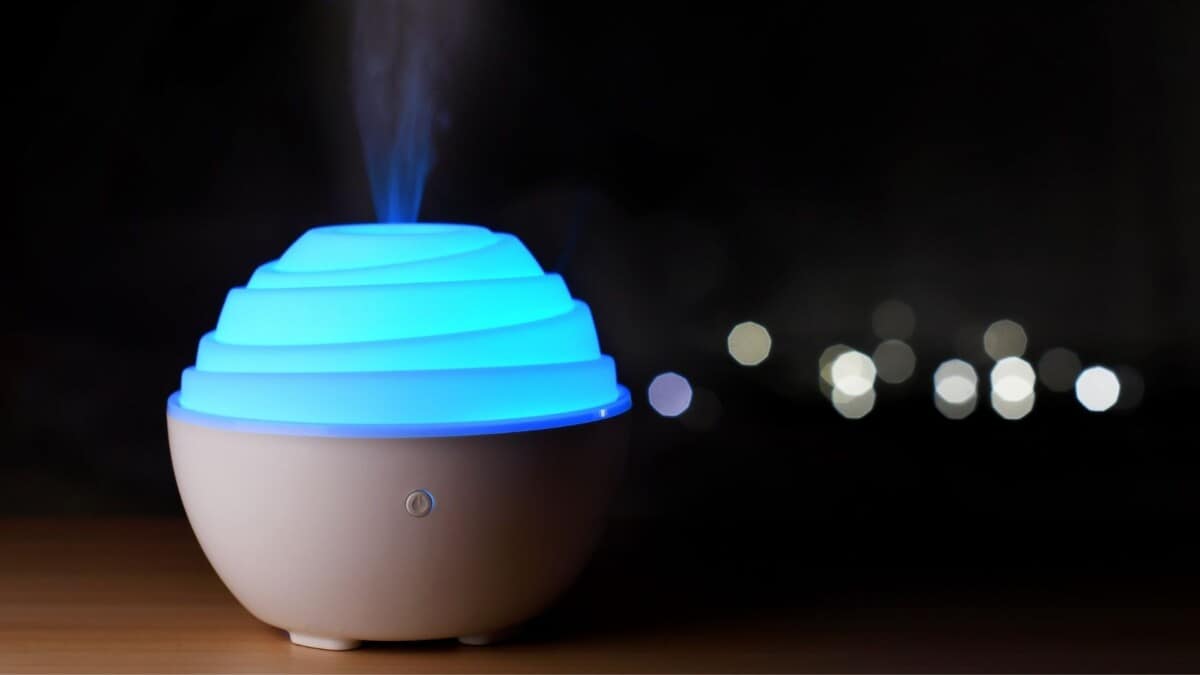We love to keep our house smelling fresh and often leave our essential oil diffuser running for days. But after my friend pointed out that we were habitually inhaling their fumes without consideration of our health, I decided it might be time to learn more about using essential oil daily.
The safety of diffusing essential oils daily depends on a few factors, including the quality of the oil, the diffuser, and how often you diffuse. Start with a low setting and only diffuse for a short period (15-30 minutes). You can always increase the amount of time or diffuser settings as needed.
There is a lot of debate surrounding the use of essential oils, and one of the most common questions is whether or not it is safe to diffuse them daily. In this blog post, we will explore the safety of diffusing essential oils and provide some tips for doing it safely.

What are essential oils and what do they do?
Essential oils are extracts from plants that have been used for centuries for their medicinal properties. Aromatherapy is the practice of using essential oils to improve a person’s health or mood.
Essential oils have several health benefits. Inhaling essential oil is an excellent method to treat respiratory problems such as flu, colds, and sinus infections.
Its properties are also excellent for treating and balancing emotional problems, such as anxieties or panic attacks. They also help us improve the body’s physiological functioning and energy balance.
There are many ways to enjoy its benefits through aromatherapy, but the best way to use them depends on the purpose. When you are getting started, the best practice is to experiment with various scents because we are unique, and what works well for one may not be best for you.
A very simple and effective way to use essential oils is through diffusion, using an aroma diffuser. There are various types of essential oil diffusers offering different benefits. For example, when a cold steam diffuser disperses, the molecules of the antiseptic essential oils remain in the air intact for hours.
This makes the air clean, free of fungi, viruses, bacteria, and mites. Heat diffusers need a controlled temperature between 50°C and 60°C because, at temperatures higher than these, the chemical composition of essential oils can decrease and affect their therapeutic qualities. For inhalation by diffusion, it is recommended to use five to 20 drops of essential oils.
Is It Ok to Diffuse Essential Oils Daily?
At what point is using essential oils too much? This is a question asked by many people, especially those new to using oils. The general consensus seems to be that there isn’t really such a thing as “too much” when it comes to using essential oils—as long as you are using them safely and responsibly.
However, there are a few guidelines you can follow to make sure you’re getting the most out of your oils without overdoing them.
- It’s best to diffuse the oil intermittently throughout the day. Most recommend turning on your diffuser for fifteen to thirty minutes then shut it off for at least an hour or so.
- Only use natural essential oils. Avoid the ones with chemical addivitives.
- Use a reed diffuser, it releases fresh scents naturally and doesn’t heat the oil.
Our sense of smell is sensitive and often quickly “gets tired” of an odor (the phenomenon of olfactory accommodation) because mucosa is easy to be sensitized.
You can benefit from the full therapeutic potential of essential oils by taking 2-3 inhalations that last 10-20 minutes a day instead of having aromatization on for hours in your home or office.
Is it Safe to Leave the Diffuser on all Night?
Whether you’re using a diffuser to help your child sleep through the night or to relieve congestion, you may be wondering if it’s safe to leave the diffuser on all night.
The simple answer is no. It is not a recommended practice, even if you are using high-quality essential oils because prolonged exposure to diffused essential oils can actually cause headaches, irritate the throat and skin, and increase blood pressure and heart rate.
Although diffusing the right oils can create an antimicrobial and antibacterial environment that eradicates airborne bacteria, leaving the diffuser on all night is not a good practice.
Can Breathing Essential Oils be Harmful?
When it comes to essential oils, there’s a lot of misinformation floating around. Some people swear by the healing powers of essential oils, while others claim that they can be harmful. So, what’s the truth? Can breathing in essential oils be harmful to your health?
Many people use diffusers with essential oils to purify the air in the home, take advantage of the beneficial effects of the different essences or simply perfume the rooms.
However, breathing essential oils can also have contraindications and even be toxic. The problem is that, even under normal conditions of use (therefore without abuse or misuse), the appearance of unwanted irritating symptoms can occur in the eyes, nose, throat, and even breathing.
These irritations may be due to essential oils high in phenols or ketones, unsuitable for inhalation, and irritating to the respiratory tract. The indiscriminate breathing of essential oils, which are very concentrated substances, can lead to contact dermatitis and allergies, which, in turn, cause excessive itching.
How Long Should You Diffuse Essential Oils
When essential oils aren’t handled properly, they can cause health problems. When you let the diffuser blow all day and all night, it can cause overexposure. There is a delusion that essential oils are natural, so it’s no harm in using them regardless of the quantity or timing.
However, this is an incorrect assumption because even though they may be natural, they can also cause harm when misused, leading to skin burns, irritation, or sensitization.
In fact, you really shouldn’t be diffusing for hours. The recommendation is to activate the diffuser between one and three times a day for up to 30 minutes maximum.

What Essential Oils Should you not Diffuse?
You can diffuse many different essential oils, and each has its own unique properties and benefits. However, there are also a few oils that you should avoid diffusing.
Phenols and aromatic aldehydes tend to be the most irritating essential oil compounds. For example, Eugenol (Basil, Cinnamon Bark, Cloves), Thymol (Basil, Thyme), Carvacrol (Thyme, Oregano, Savory), Cinnamic Aldehyde (Cinnamon Leaf) should not be diffused because these can have adverse effects on the mucous membrane.
Even though some of these essential oils are useful for respiratory system conditions (sore throat, bronchitis, etc.), they should not be diffused. You can use other methods to take advantage of their medicinal benefits.
FAQ
How often should you diffuse essential oils?
Short intervals are better than continual diffusion of essential oils; 20 minutes in the morning, noon, and evening are enough to provide all its benefits.
Is breathing diffused essential oils harmful?
For most people breathing diffused essential oils is not harmful, however, breathing them excessively, and for people with asthma or other respiratory condition, it can be unhealthy.
Conclusion
So, is it ok to diffuse essential oils daily? The answer is yes and no. Diffusing essential oils for an extended period can be overwhelming for the senses. It’s best to take breaks throughout the day and allow your body (and mind) to rest.
However, diffusing a few times during the day is likely just fine and could provide some health benefits. What are your thoughts on using essential oils daily? Do you have any favorite recipes or blends that you use regularly?





